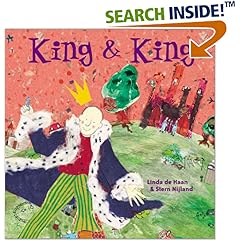Not that I think he's going to be president, but Ron Paul is attracting the support of a cadre of some pretty charged-up Republicans who may have an impact on their party's future.
Paul's position on same-sex marriage is muddy, perhaps intentionally. But when, in an interview, ABC's John Stossel asked Paul "Should gays be allowed to marry?" his (initial) answer was "Sure." That later gets qualified, but in and of itself it sets him apart not just from the fundies but also from mainstream Republicans-and Democrats-running for the highest office.
When pushed, alas, Paul says that government shouldn't be in the marriage licensing business, but it's not like hetero couples are going to give up all the government-provided rights and benefits they receive by getting hitched.
Paul also reveals a deeper antipathy when he says of gay couples, "just so they don't expect to impose their relationship on somebody else." That sounds more like the Texas congressman who, while opposing a federal constitutional amendment to ban same-sex marriage, did vote for the Defense of Marriage Act which, in part, bars the federal government from recognizing same-sex marriages (even when recognized under state law) for purposes such as filing joint federal taxes, Social Security inheritance and spousal immigration. And Paul voted in 1999 to bar the District of Columbia from [using federal funds for adoptions by unmarried parnters]. ( Some key Paul positions are summarized here.)
Even so, that initial "Sure" was nice to see.
Update. Paul's gay supporters say the 1999 amendment he voted for, regarding adoptions in the District of Columbia, involved federal funding for adoptions by unmarried couples, and it was the federal funding that Paul opposed. However, it appears that the amendment did not seek to limit the total amount of federal funds to D.C., but to prohibit the use of federal funds by the D.C. government for any operations that would facilitate adoption by unmarried partners. (H.R. 2587; H.AMDT. 356: An amendment to prohibit any funding for the joint adoption of a child between individuals who are not related by blood or marriage.)
More. Back in 1998, our own contributing author David Boaz advocated Privatize Marriage: A simple solution to the gay-marriage debate. But I have to agree with our frequent commenter Avee, who shares:
I, too, would prefer government to stop licensing marriage. But it's not politically likely that, anytime soon, Washington is going to revoke all the hundreds of special rights that government grants to married couples, in the tax code and otherwise. That being said, does Paul support stopping the government from discriminating against same-sex couples by giving them all the rights it gives to opposite-sex couples whose marriages it recognizes (for as long as it continues to recognize opposite-sex marriages)? It would appear Paul does NOT support this.
